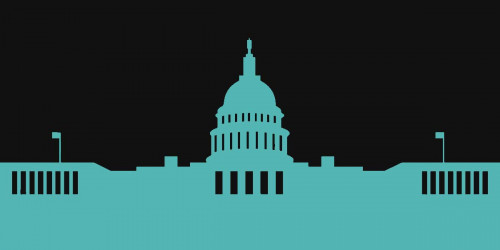Microsoft has been battling with the federal government over the Department of Justice's high profile attempt to get access to emails stored abroad in Ireland for the better part of 2014. The US government has claimed a US warrant is sufficient to get emails even when stored in another country, while Microsoft has resisted, arguing the US warrant power does not reach that far. The case has made business rivals into temporary allies and forced Ireland's Minister for Foreign Affairs and Data Protection to ask the European Commission to formally support Microsoft.
Today we joined the Brennan Center for Justice, the ACLU, and The Constitution Project in a new amicus brief filed in the Second Circuit Court of Appeals supporting Microsoft. We warn the appeals court that two pieces of faulty logic in the lower court's reasoning could have dangerous implications for digital privacy.
Here's the background. In December 2013, the federal government applied for a search warrant to obtain the contents of emails and other details from a user account hosted by Microsoft. While the non-content data were stored in the United States, Microsoft discovered that the contents of the emails were stored on a server located in Dublin, Ireland. It refused to turn the emails over to the government, arguing that a US judge had no authority to issue a search warrant for records stored abroad. A federal magistrate judge disagreed with Microsoft in April 2014, ordering it to turn over the emails. Microsoft appealed that decision to a federal district court judge, and we filed an amicus brief supporting Microsoft. But in July, the district court agreed with the government and upheld the warrant. Microsoft appealed that decision to the Second Circuit, and that's where our latest amicus brief was filed.
We focus on two major issues. First, both lower court decisions hinged on a belief that the Fourth Amendment "moment" only occurred when a government agent sitting in the US reviewed the emails at issue. But the Fourth Amendment event actually occurs earlier than that: when Microsoft copies the emails to turn over to the government. That moment is a Fourth Amendment "seizure" since at that point, there is a meaningful interference with the email user's right to possess and ultimately control his messages. In other words, once these emails are copied, the user loses the ability to decide who gets the messages and for what purposes. A contrary decision has serious privacy implications as it allows the government to adopt a "seize first, search later" view of the Fourth Amendment, where the government can seize a computer, copy all of its data, and keep that information indefinitely—without a search warrant at all.
Second, one of the arguments made by the government and accepted by the lower courts is that the government has the power to seize emails in Ireland using a US search warrant because this warrant is executed like a subpoena. The argument goes like this: while a physical world search warrant for a place like a house authorizes the government to kick down a door and take what it has been authorized to seize, a search warrant for email is more like a subpoena, where the government sends the request to the holder of the emails and asks them to turn over the information. When a person receives a lawfully issued subpoena, they generally must comply—regardless of where the records are stored, even if they are stored abroad. Thus, the government concludes that it can use a US search warrant to get the emails into the country. But as we explain in our amicus brief, any analogy to a subpoena must be rejected because the data at issue here are the contents of emails, which the government cannot obtain with merely a subpoena. Instead, the Fourth Amendment requires the government obtain emails with a search warrant. Although the government did obtain a warrant here, extending the warrant's reach to emails stored abroad should not rest on an inaccurate analogy to subpoenas.
The case is being closely watched both here in the US and around the world, as it involves tricky questions about modern communications never before addressed in US courts. Regardless of the outcome, we hope the Second Circuit doesn't adopt the bad legal reasoning that brought the case to where it is today. We expect oral argument sometime in the spring or summer of 2015.











